Orient Tendencies
Monday January 14, 2013, no114
Weekly information and analysis bulletin specialized in Arab Middle Eastern affairs prepared by neworientnews.com
Editor in chief Wassim Raad
wassimraad73@gmail.com
- See more at: http://www.neworientnews.com/news/fullnews.php?news_id=84924#sthash.YFE8LH9P.dpuf
By Ghaleb Kandil
The conflict of Ukraine initiated by the United States and the West, which is accompanied by threats and interventions in the pre-square of Russia, triggering a direct confrontation with the rising Russian power, aims to impose new rules in accordance with a vision defended by U.S. strategists, including Zbigniew Brzezinski, Henry Kissinger and Richard Haas. This vision is a multi-polar world led by the United States, in opposition to the Russian vision of an equal relationship, as part of an international partnership led by Russia and America.
![]()
The Russian response in Ukraine is offensive and meets the soft power strategy, based on the supremacy of geographic, demographic and economic factors. The West was shocked by the Russian action in the Crimea, which is preparing for a referendum in the next few days to decide union with the Russian Federation, while activism is growing in other provinces of Ukraine on the basis of Slavic ethnic ties and religious affiliation to the Orthodox Church, strengthened by four centuries of history.
Faced with the option of sanctions wielded by the West, Russia has reacted strongly, suggesting its intention, in the case of enforcement of these threats, to accelerate steps to transform the BRICS and Shanghai organization in a powerful international, independent and competing U.S. financial structure. Moscow will work to become an international financial center, rival to New York, as a platform for international transactions, which would threaten the supremacy of the dollar as a safe-haven currency. Russia also plans to seek a restructuring of the United Nations.
In addition, any U.S. decision to implement international sanctions against Russia will cause serious differences between Washington and its European allies, who have already expressed reservations about U.S. demands to reduce their trade with Russia. Especially since the Russians have assured that they would impose their own sanctions against U.S. and European companies. Number of articles in the European press reflected the British, French and German fears of such Russian measures.
Ukrainian crisis goes beyond the boundaries of this country. It clearly reflects the contours of the struggle Russia has lead to the end to get back his historical influence in the Slavic countries of Eastern Europe, fell into the hands of the West after the fall of the Berlin Wall. Experts assure that if Russia succeeds in imposing its vision of the political future of Ukraine, significant internal developments will follow in other countries, such as Romania, Bulgaria and Hungary.
The West, led by the United States, was surprised by the reaction of the Russians, who have decided to accept the challenge, forcing NATO to retreat for fear of direct confrontation. This means that the United States will be forced, ultimately, to accept new rules for international partnership without American leadership. In addition, the analysis saying that the Ukrainian crisis, near Russia, will affect other issues (war in Syria, Iran’s nuclear … ) is an illusion, because these conflicts have their own dynamics and does not depend only on Russia’s will.
![]() Syria has its own will and its own popular and military force. Its resistance helped Russia to build new international balances, as well as the emergence of Iran as a regional power. Firmness and determination displayed by Vladimir Putin in both cases are the result of the balance of power, which will be reinforced by the Ukrainian crisis. Many experts and Western research centers have drawn comparisons between the resistance of President Bashar al- Assad, the state, the people and the Syrian army, facing a universal war which lasts for three years, and the flight of President Viktor Yushchenko after a few hours facing a group of saboteur, who stormed his palace and established an illegitimate power from a coup.
Syria has its own will and its own popular and military force. Its resistance helped Russia to build new international balances, as well as the emergence of Iran as a regional power. Firmness and determination displayed by Vladimir Putin in both cases are the result of the balance of power, which will be reinforced by the Ukrainian crisis. Many experts and Western research centers have drawn comparisons between the resistance of President Bashar al- Assad, the state, the people and the Syrian army, facing a universal war which lasts for three years, and the flight of President Viktor Yushchenko after a few hours facing a group of saboteur, who stormed his palace and established an illegitimate power from a coup.
The new world will be born on the ruins of American illusions and emerge on the solid rock of the resistance of Syria.______________________________________________________________
Statements
Michel Suleiman, President of the Republic
«A strong president does not submit to the dictates of that party (Hezbollah). Hezbollah’s demands overstep all limits of free expression without showing consideration for law or ethics. I have proposed a defensive strategy protecting the principles of resistance in a recent address. The resistance must submit to applicable laws and principles rather than being biased towards or subservient to the tripartite people-army-resistance formula.»
Gebran Bassil, Foreign Minister
«The ‘open door’ policy towards the refugees cannot be adopted in Lebanon anymore, because an internal explosion is imminent if the situation remains as it is. The refugee issue affects Lebanon, it is related to Lebanon’s existence and identity. Lebanon is screaming to you from its pain, answer the scream so that it will not scream in the face of the whole world by stopping the influx of refugees. Lebanon has the right to free its territories and to resist against any Israeli aggression by all legitimate means. No one in the Arab community has the right to give up resistance in the face of Israeli occupation.»
Beshara Rai, Maronite Patriarch
«Lebanon is a civil state as show in the National Charter and Article 9 of the Constitution, where it is described as a non-religious state whose power is through the people and not through religion. Lebanon’s neutrality is as a need for the region. That is why we must keep the country away from regional and international fronts, so it can continue to play its role and fulfill its message.»
Sheikh Naïm Kassem, Hezbollah Deputy Secretary General
«The resistance is not a proposal or an idea to discuss or experiment. It is a constant of Lebanon, and it is clear that the right of resistance is at the heart of the ministerial statement and is an essential preamble.»
______________________________________________________________
Events
![ما هي أهمية تحرير الزارة وتداعياته على المسلحين في الشمال و المناطق الحدودية ؟]() Syrian regime troops Saturday captured a rebel-held town near a famed Crusader castle in the strategic province of Homs, state media and a monitoring group said, after nearly a month of fighting. The town of Zara, near the Krak des Chevaliers castle in Homs province, fell to government forces a day after it was hit by air strikes, the Britain-based Syrian Observatory for Human Rights said. A source in the pro-regime National Defense Forces militia was quoted by state news agency SANA as saying the army had “seized full control of Zara after having wiped out the terrorists” — the regime’s term for rebel fighters. The source added search operations were underway to make sure there were no gunmen hiding in the town or surrounding orchards. The Observatory said the town, which is mostly inhabited by the Sunni Turkmen minority, was taken after “fierce fighting between loyalist troops and fighters from Jund al-Sham and other Islamist groups.” The capture of Zara — which lies west of Homs city — comes as the army is battling rebels further south around Yabrud, an insurgent stronghold in the Qalamoun mountains close to the Lebanese border. The fighting is part of an army offensive launched late last year also to secure the Damascus-Homs highway and to several a key rebel supply route to the town of Arsal in Lebanon’s Beqaa Valley.
Syrian regime troops Saturday captured a rebel-held town near a famed Crusader castle in the strategic province of Homs, state media and a monitoring group said, after nearly a month of fighting. The town of Zara, near the Krak des Chevaliers castle in Homs province, fell to government forces a day after it was hit by air strikes, the Britain-based Syrian Observatory for Human Rights said. A source in the pro-regime National Defense Forces militia was quoted by state news agency SANA as saying the army had “seized full control of Zara after having wiped out the terrorists” — the regime’s term for rebel fighters. The source added search operations were underway to make sure there were no gunmen hiding in the town or surrounding orchards. The Observatory said the town, which is mostly inhabited by the Sunni Turkmen minority, was taken after “fierce fighting between loyalist troops and fighters from Jund al-Sham and other Islamist groups.” The capture of Zara — which lies west of Homs city — comes as the army is battling rebels further south around Yabrud, an insurgent stronghold in the Qalamoun mountains close to the Lebanese border. The fighting is part of an army offensive launched late last year also to secure the Damascus-Homs highway and to several a key rebel supply route to the town of Arsal in Lebanon’s Beqaa Valley.
Saudi and Emirati pundits have quit major media outlets in Qatar, including the broadcaster of top-flight European football, they said on Sunday, as tensions soar between Doha and Gulf states. In an unprecedented decision on Wednesday, Saudi Arabia, the United Arab Emirates and Bahrain withdrew their envoys to Qatar, which they accused of meddling in their internal affairs by supporting Islamists. Doha has dismissed the charge, citing instead differences in regional politics. Saudi columnist Samar al-Mogren, who writes for al-Arab Qatari daily, tweeted on Sunday that the “Saudi ministry of culture and information has decided to end the collaboration of Saudi writers with Qatari newspapers.” She said that two other Saudi writers, Saleh al-Shehi and Ahmed bin Rashed al-Saeed, had also stopped writing for Qatari newspapers based on the ministry’s orders. Another writer, Muhanna al-Hubail, had received similar orders from the ministry, said Mogren. Meanwhile, Emirati commentators and analysts announced they had quit BeIn Sports, which exclusively broadcasts matches from the English Premier League and the Spanish La Liga to millions of football fans across the Middle East. Ali Saeed al-Kaabi and Fares Awad announced on Twitter Saturday their resignation from BeIn, without giving any reasons. Emirati football pundit Sultan Rashed said he would stop contributing to BeIn, while analyst Hassan al-Jassmi said he would no longer appear on both BeIn and al-Kass, another Qatari sports channel. Qatar is a staunch supporter of the Muslim Brotherhood, viewed by most conservative monarchies of the Gulf as a threat to their grip on power in their countries because of its grassroots political advocacy and calls for Islamic governance.
The Al-Nusra Front in Lebanon claimed responsibility for the rocket attack that hit Hermel earlier on Saturday. “The Al-Nusra Front in Lebanon, in coordination with Abdullah Azzam Brigades’ Marwan Hadid Brigades, targeted the stronghold of Iran’s party [in reference to Hezbollah] in Hermel with six Grad missiles,” a statement released Saturday on the terrorist organization’s Twitter account said. It added that the attack came in retaliation to Hezbollah’s “killing of our people in Syria and its injustice towards our people in Lebanon, especially the detainees.” “The operations will carry on, God willing, in Syria and Lebanon against [Hezbollah],” the statement warned. Earlier on Saturday, the National News Agency reported that two rockets originating from the Anti-Lebanon Mountains landed on the eastern side of Hermel near the state hospital, without causing any casualties. Three other missiles hit Beqaa’s Al-Qaa without causing any damages either, the Lebanon’s state news agency reported later in the day. Lebanese border regions have witnessed numerous rocket attacks and other violations, as fighting continues between rebel and regime troops across the border in Syria.
______________________________________________________________
Press review
As Safir (Lebanese daily, Arab nationalist)
(March 8, 2014)
Hezbollah criticized President Michel Suleiman’s insistence that the Baabda Declaration is a vital document for Lebanon, and called on him to apologize for the recent position he has taken towards the party.
Hezbollah leadership sources expressed the party’s consternation at [Suleiman’s] insistence on inflating the Baabda Declaration, considering it the achievement of the age and estimating that what it contains is more important than the Taif agreement and the constitution.
That statement is not a constitution and there were reservations about it from the first moment.
The source also called the recent position Suleiman has taken toward the party a mistake and demanded an apology. “[Suleiman] has erred and today [he] must take back his mistake and present a clear and frank apology to amend his recent stances.”
“This is the only way his relationship with the resistance can be re-ordered and corrected.”
The recent spat comes after Suleiman called for “not clinging to wooden formulas that hinder the drafting of the ministerial statement,” in reference to the people-army-resistance formula championed by Hezbollah.
As Safir (March 8, 2014)
Labor Minister Sejaan Azzi said he is optimistic that calls and discussions before the ministerial statement drafting committee’s next meeting on Tuesday will lead to positive results.
“There is a great hope that the calls over the coming days will lead to some kind of result,” Azzi told As-Safir. “I expect that we will either go to parliament with a ministerial statement or that we will tackle the remaining complications.”
He added that “the committee is not ineffective, but it lacks the political firmness [necessary] to fully carry out its role.”
Ministerial sources said that while the committee’s upcoming session could be its last, a failure to reach agreement on the document before March 17 would create a new problem for the country.
“Either endorsement of the draft ministerial statement or raising [it] to the parliament for a final decision is expected,” sources said.
“If the ministerial statement is not finalized before the 17th of the month, there will be a new problem in the country.”
An Nahar (Lebanese daily, close to March-14 Coalition)
(March 8, 2014)
Lebanon’s Interior Minister Nohad Mashnouq defended his Thursday meeting with Change and Reform bloc leader MP Michel Aoun on the ministerial statement after the Lebanese Forces took umbrage at the sit-down. “The conversation with Aoun was limited to explaining our position on the resistance clause in the ministerial statement,” the Future Movement minister told An-Nahar newspaper in comments published Friday. “That is, that the resistance must be under the sovereignty and authority of the state.”
Mashnouq’s visit offended his Future Movement’s ally the Lebanese Forces, which oppose Aoun and his party.
The meeting prompted Future Movement leader MP Saad Hariri and LF leader Samir Geagea to discuss local and regional matters and the efforts being made to ensure that presidential elections be held within the constitutional timeframe.
The interior minister further defended himself, saying that he conducted an “inaugural tour” of sit-downs with top parties, but did not meet with any Hezbollah figures.
An Nahar (March 7, 2014)
Speaker Nabih Berri said that while today’s meeting of the ministerial statement committee is unlikely to reach agreement on a final format for the document there are no major obstacles to its completion.
“With regard to the progress of the ministerial statement until the present, I say that there is nothing palpable and there is nothing [problematic],” Berri told An-Nahar. “In the end it is in no-one’s interests not to reach [agreement] on a statement.”
He also mentioned that the constitution grants the cabinet 30 days to produce a ministerial statement, thereby setting a March 17 deadline for the current cabinet. If the government does not produce the statement by that date, the president is required to call for parliamentary consultations and the cabinet becomes a caretaker government.
Meanwhile, President Michel Suleiman said he felt reassured the government would not face problems overcoming present issues of contention.
“There is no matter that will break up the cabinet… the Baabda Declaration has become [more important] than the ministerial statement, which does not mention everything,” Suleiman said in a statement before returning from the International Support Group for Lebanon conference in Paris.
“The subject of resistance has solutions, and a flexible format for mentioning it can be reached without any problems.”
Al Akhbar (Lebanese Daily close to the Lebanese Resistance)
Suhaib Anjarani (March 8, 2014)
![]() Yesterday, it appeared as if Syria was on the verge of a new stage of conflict between jihadi factions, one that is expected to escalate full to a “jihadist civil war” between ISIS on one side and al-Nusra Front and the Islamic Front on the other.
Yesterday, it appeared as if Syria was on the verge of a new stage of conflict between jihadi factions, one that is expected to escalate full to a “jihadist civil war” between ISIS on one side and al-Nusra Front and the Islamic Front on the other.The first signs of this impending civil war appeared in ISIS spokesman Mohammed al-Adnani’s audio message. He tried to entice jihadists by addressing “all those who seek jihad in the name of Allah… all those who got confused, who are now lost and fearing sedition and seeking reason, and those who consider stopping, backing down or staying neutral.”
Though his message sounded rather calm, it in fact clearly carried direct threats against all those who stand against ISIS. He described al-Nusra Front as the “Deception and Betrayal Front.” He also slammed the Islamic Front, describing it as “the Harm and al-Saud Front (referring to the al-Saud family that rules Saudi Arabia). Al-Adnani also stressed ISIS’s hostility toward the United States and the West, saying: “there is no other country on earth that has united all infidel forces against ISIS.”
Al-Adnani implicitly called upon jihadists to join ISIS, saying “oh people seeking righteous… how could you join the ranks of Salim Idriss the devil, or al-Jarba party, or even Jamal Maarouf’s militias and others supported by the Saudis, America and the infidels of the West.”
He also addressed the muhajirin- foreign fighters in Syria- saying “Oh muhajirin still fighting along with other the factions. Look around you to see how many other foreign fighters have remained with you,” calling upon al-Ansar- Syrian jihadists- to follow in the footsteps of the muhajirin saying: “oh Ansar follow the example of the muhajirin, they are the security valve of every battlefield of jihad.”
Al-Adnani reiterated that it wasn’t ISIS that started the fighting between jihadist groups, claiming that “accusations against it are void,” and threatening all those “who don’t fear Allah’s wrath and they that dare to attack us.”
He appeared even more threatening when speaking about “the fake claims that the ISIS refused to follow sharia,” presenting many examples when ISIS accepted verdicts issued by the joint tribunals. However, he stressed that tribunals invoked by al-Nusra Front are unacceptable. “Maybe their first ruling would be that ISIS leaves Syria and give up the land to thieves and traitors,” al- Adnani said, adding, “that’s something that would call for hitting heads, breaking necks, and splitting open abdomens.”
He also slammed the initiative of Saudi Sheikh Abdullah al-Mouhaysini who was recently injured in the head after joining the ranks of the Islamic Front in the industrial district in the Sheikh Najjar region in Aleppo.
While al-Adnani ignored the threats of al-Nusra Front chief, Abu Mohammed al-Golani, he insisted on responding to Abu Abdullah al-Shami, known as the “al-Nusra judge,” and a member of its Shura council. He called him a liar and called upon him to resort to mubahala (an Islamic tradition where two opposing sides mutually pray for the truth).
Al-Adnani denied that ISIS accepted to mubahala, referring its dispute with al-Nusra Front to al-Qaeda leader Ayman al-Zawahiri. According to a jihadi source speaking to Al-Akhbar “al-Adnani’s message is a proof of ISIS’s incapacity to confront others. It is crumbling to the point that it is now seeking pity from other jihadists.”
“The call to mubahala is an attempt to escape confrontation but our retaliation will only hit them on the battlefield,” the source affiliated with al-Nusra Front said. Sources close to the Islamic Front refused to comment.
Meanwhile, a Chechen source affiliated with ISIS said, “the most important part of Sheikh al-Adnani’s message was he slammed al-Golani, not al-Nusra Front. We are the true fighters of al-Nusra Front, the group sent by Emir Abu Baker to Syria and integrated within the Islamic State. It is now time to put matters into perspective.”
ISIS supporters celebrated al-Adnani’s message over Twitter, the main social media platform used by jihadists. Abu Mouaz al-Shari, an ISIS judge, summed up al-Adnani’s speech saying, “The army, the military council, the National Coalition and the National Council… they all side with America in an attempt to destroy the Islamic project.” Al-Nusra affiliates, along with its sheikhs and judges, mocked the message and considered it laughable.
His real name in thought to be Taha Sobhi Falaha and was born in 1977 in Banash, a village in Aleppo’s countryside. He was first the spokesman of ISIS and was later appointed an emir over the Levant. According to jihadi sources “Sheikh al-Adnani was among the first foreign fighters in Iraq when the American campaign began. He is also a member of the Shura al-Mujahidin Council.
The Multi-National Forces arrested al-Adnani at Iraq’s al-Anbar in May 2005 under his fake name “Yasser Khalaf Hussein Nazal al-Rawi” and was released in 2010.
An Iraqi intelligence official said back in December 2012 that al-Adnani is currently using a number of aliases including “Abu Mohamed al-Adnani, Taha al-Banshi, Jaber Taha Falah, Abu Baker al-Khatab and Abu Sadek al-Rawi.”
Al Akhbar (March 8, 2014)
Lea al-Qazzi
Long gone are the days when the leader of the Free Patriotic Movement (FPM), MP Michel Aoun, would accuse his political opponents of subordination to petrodollar states. After retreating from his “one-way ticket” rhetoric about former Prime Minister Saad Hariri’s self-imposed exile, he is now recalibrating his relationship with the Kingdom of Saudi Arabia months before the Lebanese presidential elections. Suddenly, it appears as though vindication is not impossible (in reference to the title of the book published by the FPM The Impossible Vindication, which details the mismanagement of government finances at the hands of the Future Movement) as Aoun decided to transcend his track record with Saudi Arabia, a country that happens to sponsor terrorism and fundamentalist movements around the world.
He retracted his previous statements, although he never used to miss an opportunity to hurl accusations at the kingdom and its primary ally in Lebanon, the Future Movement. Saudi Ambassador Ali al-Asiri’s visits to Aoun helped melt the ice but until now no official date has been set for Aoun to answer the Saudi invitation to visit the kingdom.
A FPM MP says: “The FPM decided to distance itself from vertical alignments and therefore end its estrangement from all domestic and foreign forces.” We also “seek to put an end to any hostility we might have with certain political forces.” Therefore, “we decided to readjust our relationships, especially with Saudi Arabia.”
According to a source close to the FPM leadership, Aoun believes he is close to entering the presidential palace, “As if he’s got a foot in the door and all he needs is to waltz in.” He is willing to enter into a dialogue with everyone to reach his goal. The FPM MP does not buy what is being said about his party’s leader, arguing instead: “We are convinced that we need Saudi Arabia to maintain Lebanon’s stability as it has proven that it is a very influential player inside Lebanon.”
During the days of confrontation between the FPM and Saudi Arabia, there were major differences between the two sides that led to antipathy and divergence. Currently, the FPM MP says: “The more Saudi Arabia moves in our direction, the more it will find us meeting it half way.” The relationship between the kingdom and Aoun evolved as “we have moved it from a stage of antagonism to one of open communication in order to reach an understanding that can be translated in the forthcoming elections.”
The FPM’s alliance with Hezbollah did not pose an obstacle. “Contrary to the impression we give off that we are part of the regional struggle, we are not connected to anyone.” The FPM source points out that “it is normal for Aoun to try to develop his relationship with Saudi Arabia. He believes he has the will and the ability to change it. Plus, we were never opposed to building good relationships with anyone, including the Saudis.”
He adds: “We are on the verge of important milestones in the country and it is normal that each side tries to bring together parties divided over the Syrian crisis.” Therein lies the significance of the the FPM’s relationship with its allies, especially Hezbollah, that is “built on trust in addition to the fact that Aoun has a large margin of openness towards everybody, something that not every party, movement, or side has.”
Their allies have not taken an official position regarding the FPM’s rapprochement with Saudi Arabia and so far Hezbollah is silent. Sources close to the party say that its leadership “trusts Aoun’s actions and has no problem with his openness towards anyone.” But at “meetings of party members there is a conviction that Saudi Arabia and Hariri will not give Aoun what he wants in terms of the presidential elections.”
Sources from the FPM’s other ally, the Marada Party, say that they are “not disturbed by rapprochement between any forces but it would be better if Aoun and his group embarked on this process together and not individually so it won’t appear as though it is a transitory development aimed at securing the presidential seat presidential elections.” The FPM MP affirms that “there are always channels of coordination with our allies whom we inform of our meetings with Saudi Arabia and the Future Movement.” As for the Marada Party, “they should reassess whom they delegate to coordinate with us. Perhaps they do not inform their leadership of what is going on.”
Future Movement sources scoff at the flirtation between their patron Saudi Arabia and the FPM. They believe that, “Aoun is trying to market himself to convince everyone that it is a good thing if he were to become president.” According to these sources, it is not surprising for Saudi Arabia to host Aoun because “the Saudis do not close their doors in the face of anyone.” At the same time, establishing contact and communication with Aoun does not mean that they believe in the visitor or in his choices.” They stress that Saudi Arabia does not have a name for its presidential candidate yet but “it is interested in choosing a name that it feels comfortable with. Until now, it is surely not convinced that Michel Aoun is that name.”
Al Akhbar (March 5, 2014)
![]() Our problem was with the two generals, the president and the minister of justice, and now a third person has gotten involved rather crudely: the new minister of information, Ramzi Jreij. The Lebanese Broadcasting Corporation (LBC) interviewed him yesterday to get his opinion on Ashraf Rifi’s referral of Al-Akhbarto the public prosecutor to take legal action against the newspaper.
Our problem was with the two generals, the president and the minister of justice, and now a third person has gotten involved rather crudely: the new minister of information, Ramzi Jreij. The Lebanese Broadcasting Corporation (LBC) interviewed him yesterday to get his opinion on Ashraf Rifi’s referral of Al-Akhbarto the public prosecutor to take legal action against the newspaper.Jreij was asked about his opinion regarding Monday’s editorial titled “Lebanon Without a President.” Jreij, holding yesterday’s issue of Al-Akhbar, told LBC that Ibrahim al-Amin’s editorial contained insults against the president and his post, in reference to yesterday’s editorial – rather than the one from Monday. This is an error, so we will wait for the minister to clarify whether he was commenting on yesterday’s editorial, or whether there was an error in the editing of the report.
In reality, the minister of information seems to have missed the fact that Monday’s editorial was a political opinion about the contents of the president’s speech. It contained legitimate criticism of Michel Suleiman’s attitudes on what is a sensitive issue, that is, the Resistance. No matter what one has to say about some of the statements in the editorial, these express an opinion, and whoever wishes to understand them differently to provoke a confrontation, is free to do so.
Also, the minister of information, who is a legal expert, missed the fact that Tuesday’s editorial contained the equivalent of a “tip” to the public prosecutor, regarding counterfeiting perpetrated by the president when he was commander of the army, and accusations against the minister of justice over various irregularities.
In other words, does the minister of information, in his current capacity and as a legal expert, not know that he should go the judiciary and ask it to intervene to establish the truth? Here too, we did not know what the minister of information meant to say, or is the problem in the editing again?
In this regard, our position is clear; it says:
First: We at Al-Akhbar will not appear before the public prosecution until the president and the minister of justice are summoned to appear before the court to investigate all the accusations made against them. If some people believe that they have sufficient immunity to shield them from accountability or prosecution, then we give ourselves the right to be immune from being held accountable and prosecuted too.
The judiciary must act in order to prevent the political authorities from deciding what the press can publish; those type of decisions belong to the judiciary.
Second: Our position in rejection of any campaign targeting the Resistance against the occupation is irreversible. We will continue to question the patriotism and honor of anyone who assails the Resistance.
We will continue to criticize and expose all those who undertake political, media, or field actions against the Resistance. Will not wait for anybody’s approval, be it the political authorities, the judicial authorities, the security authorities, or the partisan authorities. Those who do not like this can take a hike!
Third: The silence of the press syndicate and the order of journalists over this frenzied campaign against the media by both the Court of Publications and the Ministry of Justice, could motivate the political authorities to press ahead in its battle to stifle opinions. However, these two unions only represent the persons of the members of their councils, and they no longer enjoy our confidence, until they wake up from their coma.
But what about the “tough guy” Minister of Justice Ashraf Rifi, who tweeted from Saudi Arabia that the time for debauchery and insults is behind us, promising to build a state of institutions?
Rifi has been in Saudi Arabia for several days. His office leaked information that he would be attending a technical conference, and meeting with Saudi officials on the sidelines.
So far, there has been no official confirmation from his office or Saudi media that he has arrived in Saudi, taken part in any conference, or met with Saudi officials. So what is he doing there exactly?
Of course, we will not embarrass Rifi and wait for him to tell us what he learned about Saudi justice, or ask him about his meetings. We also will not embarrass him and ask him whether it was him personally who tweeted yesterday, or whether someone else in Beirut, before he took permission from Rifi, tweeted on his behalf, and whether Rifi approved only after the fact.
But let us consider the following account. And let him and Saudi Arabia say what they want to say.
Last Sunday and throughout the next day, there were extensive phone calls being made between Riyadh, Jeddah, and Beirut. Security officials in the kingdom were asking persistently whether reports are true that Hezbollah intends to carry out a military-security move that would encompass all of Lebanon, in a repeat of May 7, 2008.
Saudi officials even asked security officers in their embassy in Beirut and Lebanese counterparts to quickly verify this information. When they were told that there were no indications that something like this was going to happen, the callers from Riyadh stressed that the information they had came from a “well-informed source,” requesting further information.
Many hours passed before the Saudi officials were convinced that the reports were unfounded. But in Beirut, some were interested to find out who was this source that unnerved the kingdom for more than 24 hours.
It soon turned out that it was Rifi himself, boasting to the Saudi officials with his information, which, he claimed, indicated that “Hezbollah is in a state of hysteria, and is planning to take action against its opponents.” Of course, as one official in Beirut said, “We all know what else Rifi told the Saudi officials: Help us fight Hezbollah.”
Going to court? Yeah right.
Al Joumhouria (Lebanese Daily close to March-14 coalition)
(March 6, 2014)
President Michel Suleiman met with Future Movement leader MP Saad Hariri during his stay in Paris for the donor conference. Suleiman and Hariri met during a dinner held by deputy Speaker Farid Makari and discussed the latest developments in Lebanon, the paper said. The two also discussed the proposed formulas to draft the ministerial statement, as well as the campaign waged by Hezbollah against Suleiman.
A one-day international donor conference convened in Paris on Wednesday to raise foreign funds for Lebanon to provide assistance to the growing influx of Syrian refugees.
Al Liwaa (Lebanese Daily close to March-14 coalition)
(March 6, 2014)
Future bloc MP Ammar Houri said that the war of words between Hezbollah and President Michel Suleiman did not affect the discussions on the ministerial statement.
“There is a great hope that the committee agrees on a consensual ministerial statement that is accepted by everyone before the expiry of the thirty-day deadline,” Houri told Al-Liwaa.
However, the MP voiced his fear that Hezbollah’s verbal attack against Suleiman aimed at obstructing the upcoming presidential election.
“It is a blatant attempt by Hezbollah to show that it alone can define the qualifications of the new president, something that we can never accept,” Houri said.













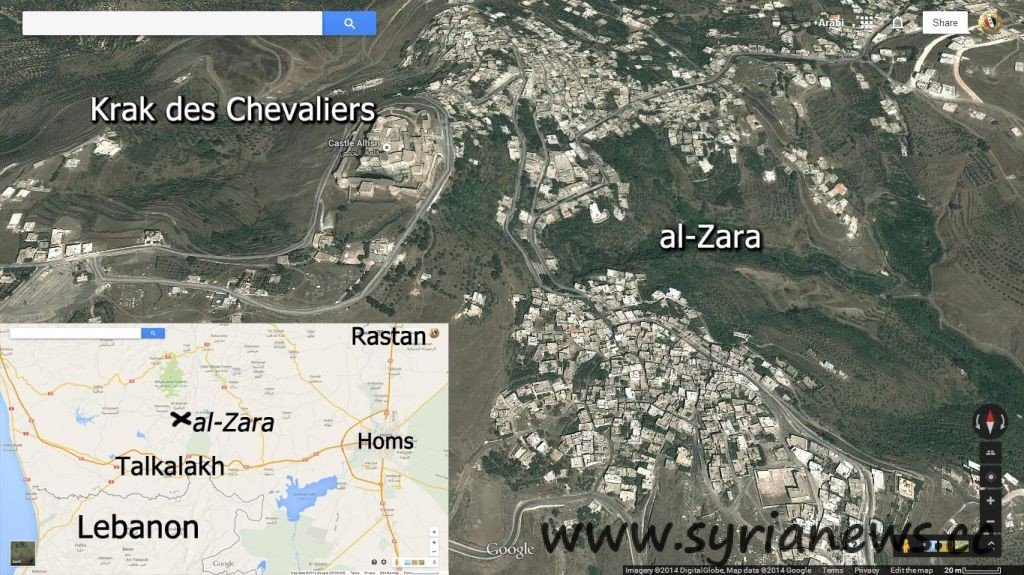
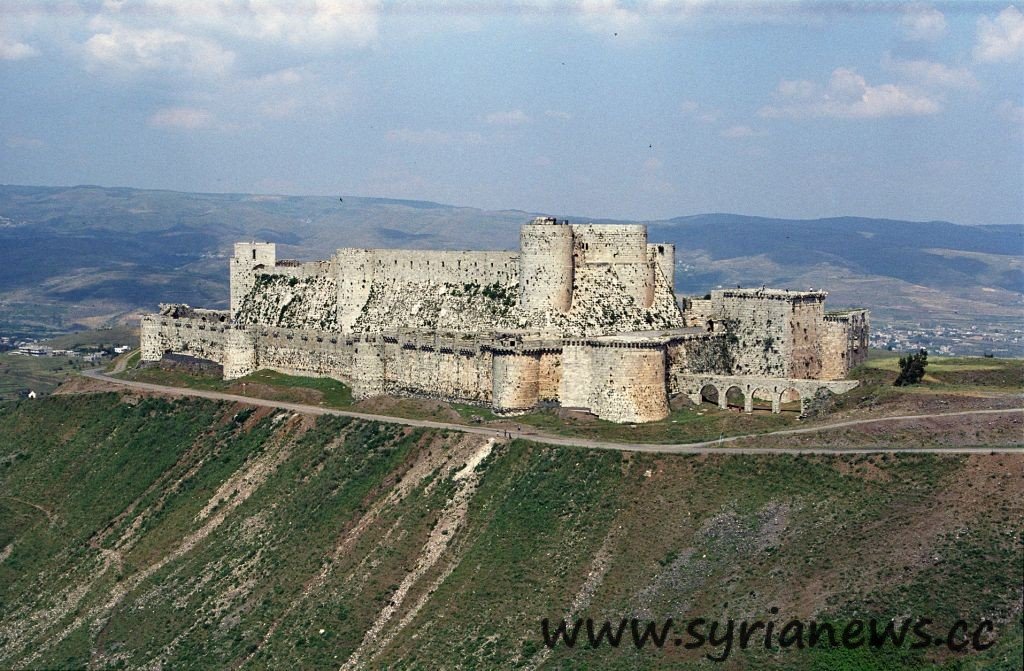




























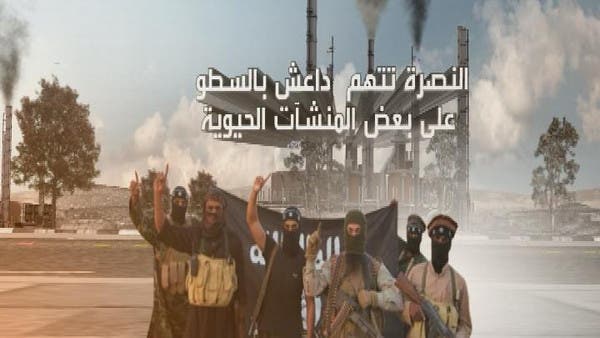






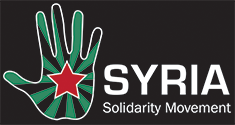



![[sa.bmp]](http://1.bp.blogspot.com/_vW1GG83Zr1U/Sb107EpBitI/AAAAAAAACJE/x7T5_WxwOIU/s1600/sa.bmp)
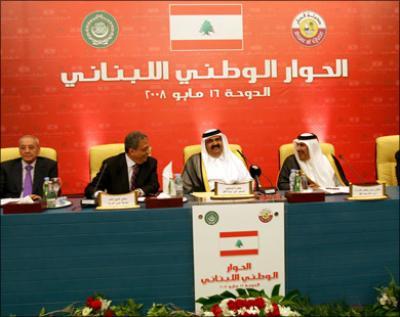







.jpg)
